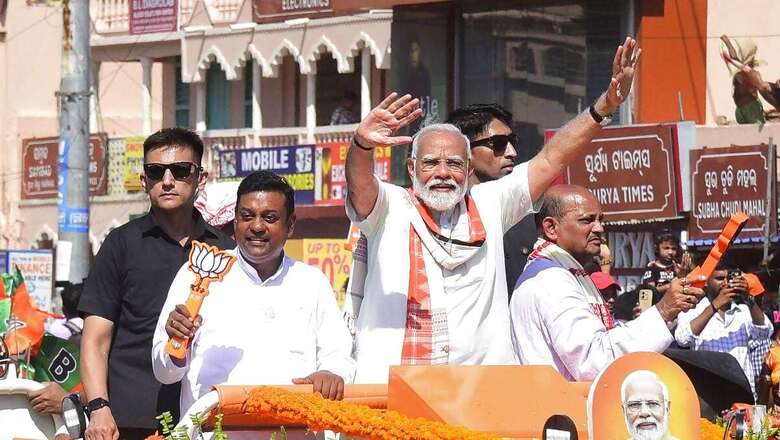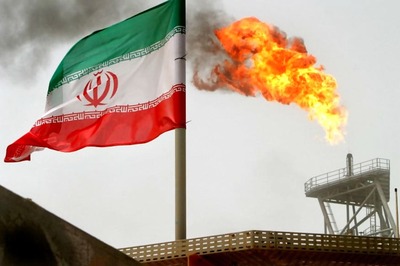
views
One issue bigger than the Lok Sabha elections 2024 for the stock market is any likely changes in long-term capital gains (LTCG) tax that could be announced in the post-polls Budget in July, said Chris Wood, a global equity strategist at Jefferies. He added that an extension in the LTCG period would, in GREED & fear’s view, be better than raising the rates, while another proposal being floated is the increase in capital gains tax for retail investors which is not healthy.
Currently, short-term capital gains is levied at 15 per cent and long-term gains at 10 per cent with the holding period is defined as one year.
Stating that a repeat of the BJP-led NDA’s defeat in 2004 is unlikely, Wood in his latest ‘GREED & fear’ note said Modi has made more positive differences to ordinary people’s lives in the ten years he has been in power “than any other leader of a government in the world today.”
“The election is now mid-way through with two-thirds of seats already voted for. Overall voter turnout is 2ppts below the 2019 level so far with Phases 1 and 2 seeing much lower turnout of 5ppts and 3.6ppts below 2019 levels respectively. This is raising concerns that the BJP will not do as well as previously assumed,” he said.
Most basic manifestation of this improvement remains the construction of 11.10 crore household toilets in rural India, Wood stated.
“This is why a repeat of the shock BJP defeat in 2004 remains unlikely in the extreme. At that time the Sensex corrected by 17% in the two days after the election results on May 13, 2004. In GREED & fear’s view there would be an even worse outcome in the event of a repeat of such a shock result,” he said.
It is entirely possible, if not probable, that the ruling party does not do as well as the BJP was hoping following its unexpectedly positive performance in the state elections held in November.
“Still even if the BJP wins by ‘only’ the number of seats in the last general election held in 2019 that is quite enough to run the government as the past five years have demonstrated. In the last general election in 2019 the BJP won 303 seats in the Lok Sabha, up from 282 in 2014. Remember that Modi originally set a target of 370 seats for the BJP and 400+ for the BJP-led alliance (NDA) in the current general election,” he said.
Wood said a bigger risk to GREED & fear for the stock market is an issue domestic fund managers are now discussing. That is whether there are changes in the capital gains tax looming.
“Such changes could be announced in the Budget which is anticipated to be announced in July after the election. The issue here is whether the tax rates will be raised or whether the period to qualify for long-term gains will be extended, or a combination of both. The current regime is that short-term capital gains is levied at 15 per cent and long-term gains at 10 per cent with the holding period defined as one year,” he said.
“An extension of the period would, in GREED & fear’s view, be better than raising the rates. Another proposal being floated would be to increase capital gains tax for retail investors but not for those investing in mutual funds. The reason that such proposals are apparently under consideration is growing evidence of retail speculation, most particularly in the options market where India has options for 182 individual stocks,” he said.
Stock options notional turnover rose from Rs 123 lakh crore in FY20 to Rs 921 lakh crore in FY24 and Rs 169 lakh crore so far in FY25 beginning April 1.
“Such paper speculation is unlikely to be viewed as healthy by Modi, or indeed the BJP. GREED & fear’s probably correct assumption is that the Indian Prime Minister has a natural suspicion of those making money out of money, most particularly in a zero-sum game like options,” Wood said.
“Modi has always, since his days running the state of Gujarat where he was chief minister for almost 13 years, been focused on the physical manifestations of growth, most importantly the construction of infrastructure. This explains the huge focus on infrastructure in the last ten years, in terms of the increased central government spending on infrastructure,” he added.




















Comments
0 comment